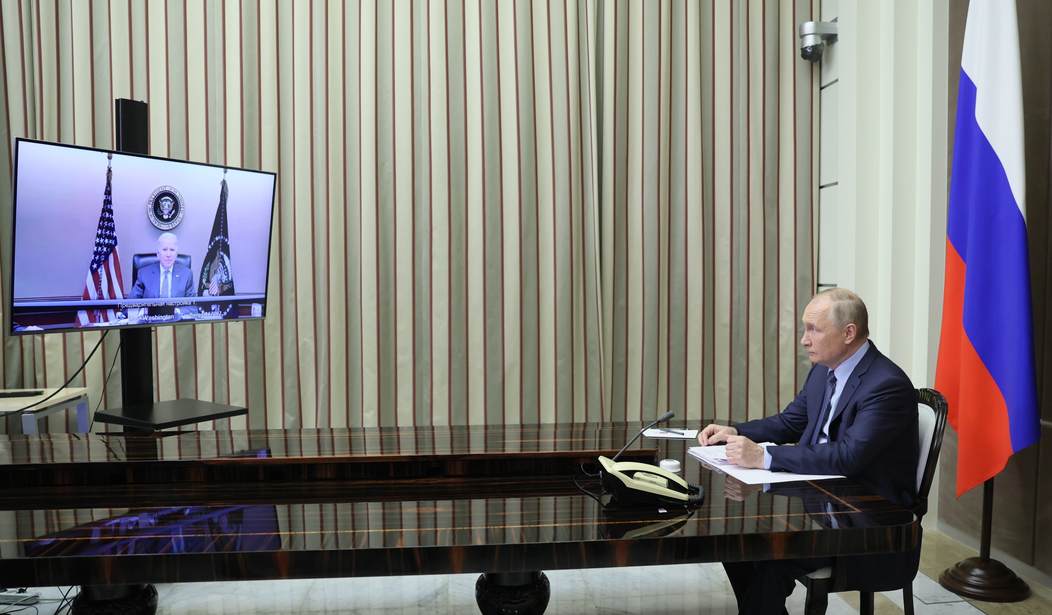We’ve reached the point in the Russian invasion of Ukraine where it is undeniable that the Russian army has been engaged in huge numbers of war crimes. These aren’t just a collection of stories assembled by journalists. There are endless videos and photos available of the people who wind up in hospitals and the mass graves filled with the bodies of Ukrainian civilians who were executed while bound. Russian soldiers have been raping women and abducting children who are sent to Russia for “adoption.” The question is, what will be done about it? The White House joined in with a number of other NATO nations this week to send a message to Vladimir Putin and that message was, ‘you will be held accountable.’
The United States and its allies vowed Thursday to hold Russia accountable for crimes committed by its forces that invaded Ukraine on Feb. 24 and gave strong support to investigations by the International Criminal Court, the United Nations and other bodies.
U.S. Undersecretary of State Uzra Zeya told a U.N. Security Council meeting on strengthening accountability and justice for serious violations of international law that in nearly 100 days the world has seen Russian forces bomb maternity hospitals, train stations, apartment buildings and homes and kill civilians cycling down the street.
“We’ve received credible reports of Russian forces torturing and committing execution style killings of people with their hands bound behind their back,” she said. “We’ve received reports of women and girls being raped, some publicly, and children taken away into Russia and put up for adoption.
Thus far the U.N. Human Rights Council and the International Criminal Court have been brought into the loop. Investigators are being deployed to western Ukraine to interview witnesses and collect evidence, if possible.
As much as I’m not a fan of the International Criminal Court when it seeks to override the law enforcement and court decisions of democratic nations, I suppose having them investigate war crimes in Ukraine might be one area where they could be useful. The problem, as we’ve discussed here before, is not in establishing the fact that war crimes have taken place. They obviously have. But that doesn’t always help matters if you can’t determine who specifically committed the crimes. Surely not every Russian soldier is a monster. If you want to bring real justice for the victims you need to identify the perpetrators.
Thus far the Ukrainians have managed to identify and drag a confession out of one Russian soldier. Identifying any significant number of them will be a challenge, to say the least. Some will have died in battle. Others will still be with their units and should eventually return to Russia. The prospect of Moscow turning any of them over to the ICC to face charges is laughable. Taking a broader view, we might conclude that Vladimir Putin himself is ultimately responsible for all of these war crimes because he ordered the invasion. But does anyone honestly think that he could be dragged into court in another country?
There will be many investigations and recriminations to come as the world comes to grips with how this all happened. Some of that is starting already. American intelligence agencies are reportedly reviewing how and where they collected data on the situation in Ukraine and how they managed to get so much of it wrong.
Ultimately, U.S. intelligence agencies underestimated Zelenskyy and Ukraine while overestimating Russia and its president, even as they accurately predicted Vladimir Putin would order an invasion.
But Kyiv, Ukraine’s capital, did not fall in a few days, as the the United States had expected. And while American spy agencies have been credited with supporting Ukraine’s resistance, they now face bipartisan pressure to review what they got wrong beforehand — especially after their mistakes in judging Afghanistan last year.
Intelligence officials have begun a review of how their agencies judge the will and ability of foreign governments to fight. The review is taking place while U.S. intelligence continues to have a critical role in Ukraine and as the White House ramps up weapons deliveries and support to Ukraine, trying to predict what Putin might see as escalatory and seeking to avoid a direct war with Russia.
This review reminds us of the early days of the invasion. U.S. intelligence officials had predicted that Zelensky would fold his hand the same way that Ashraf Ghani did in Afghanistan. They offered him a covert trip out of the country, leading to his infamous declaration that he needed ammunition, not “a ride.” So it appears that our intel agencies have plenty of homework to catch up on. They apparently thought that Kabul would stand much longer than it did and that Kyiv would fall in a matter of days. As we now know, the exact opposite happened in both cases. Let’s hope that they have a better grip on Vladimir Putin’s current state of mind and mental health. Misjudging Russia could turn out to be a far costlier mistake than the previous two subjects.








